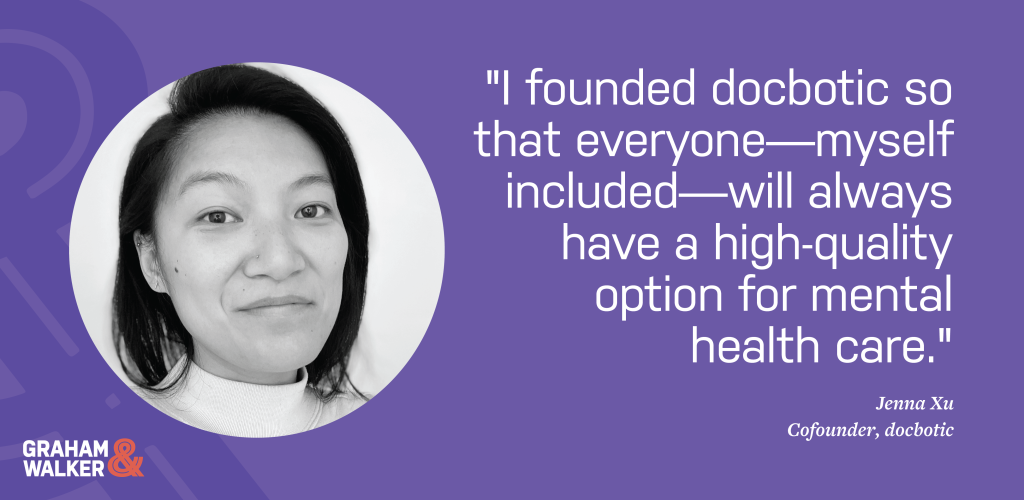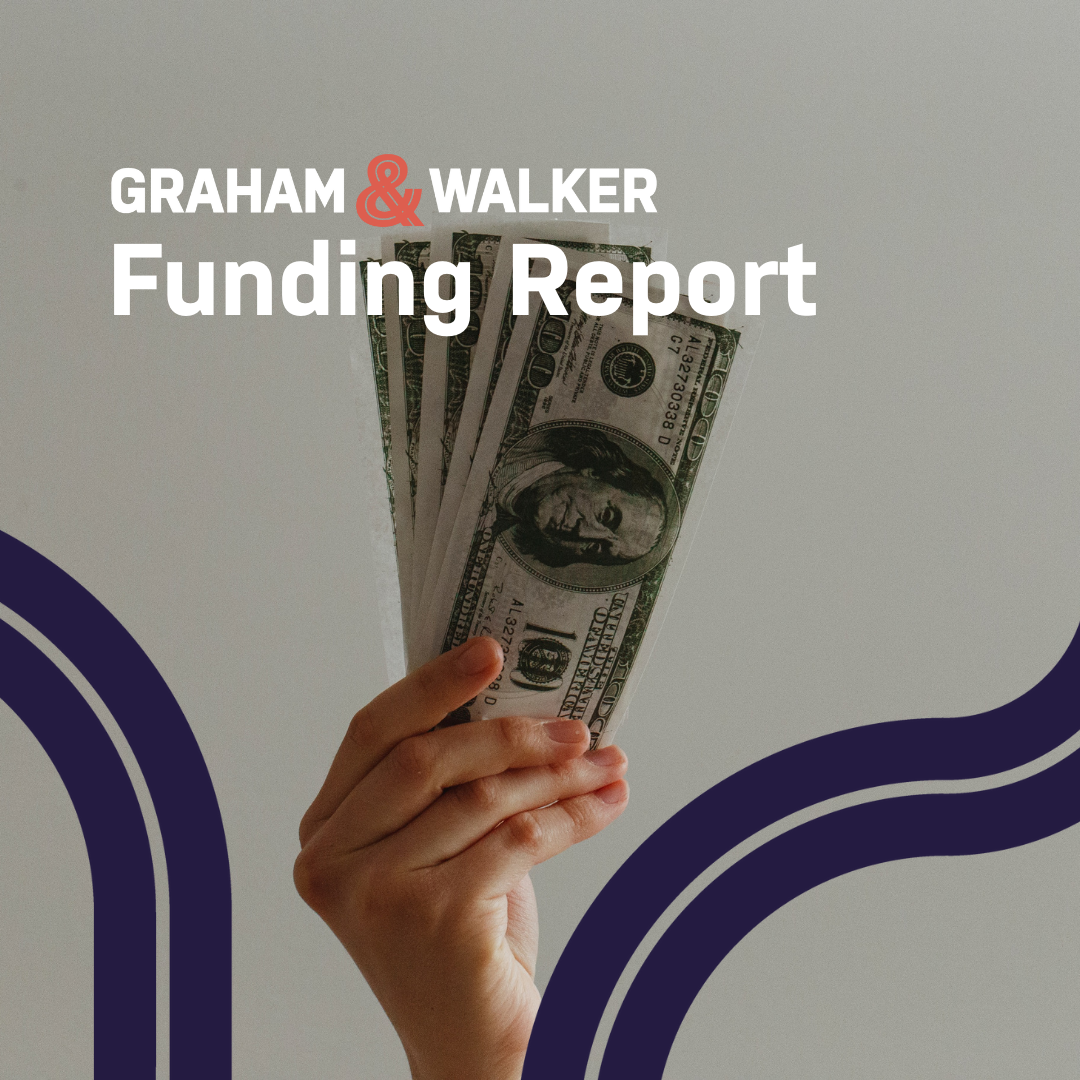
What inspired you to start your company?
Ten years ago this month, I was a newly independent 20-something without steady employment or health insurance, unwittingly starting a lifelong search for mental health care—and quickly exhausting all available options!
Medication only provided short-term relief; therapists were either expensive, poorly trained, or both; mental health apps were about as delightful as eating broccoli is for a child; teletherapy subscriptions made me feel like I was paying LCSW rates for the second coming of ELIZA.
Like most people, I never had access to adequate care when I was struggling with mental illness; it was only when I was healthy enough to hold down a job with benefits in a city that I had real options. I founded docbotic so that everyone—myself included—will always have a high-quality option for mental health care. With our team of world-class clinicians, we are codifying evidence-based therapy into text messaging programs that anyone on earth with a mobile phone can use.
Who are your cofounders, and what makes you a great team?
My cofounder, Dr. Chelsey Wilks, is a psychologist, data scientist, and digital therapeutics expert. She created the world’s first therapy chatbot with Dr. Marsha Linehan, the developer of Dialectical Behavior Therapy (DBT).
We met in industry, and started this company to build the product innovations that could both reduce clinician burnout and improve quality of care. We are an experienced doctor-patient team whose transdisciplinary skillset includes design, engineering, product, data science, psychology, behavioral science—enabling us to build mental health tech that actually works, efficiently and effectively.
Our team collectively has decades of experience in healthcare and health tech—and as doctors and patients.
How is docbotic making a difference?
Our company is revolutionizing how mental health care can be consumed. Our low-cost, provider-optional, text-based service means that care is no longer bound by the clinician shortage—we enable evidence-based therapy to be disseminated on a global scale.
For example: there are less than 800 behavioral sleep medicine doctors in the entire world who are trained in the first-line treatment for insomnia, cognitive behavioral therapy for insomnia (CBT-i); in the US, you basically need to live in either NY or CA to see one.
Our sleep improvement program is the world’s first text bot to deliver CBT-i over SMS and WhatsApp. In a clinical trial, users saw an average 72% reduction in severe fatigue, and 92% reduction in clinical anxiety. It’s since been used by 3100+ people in 120+ countries on 6 continents.
From now on, all you need to receive the first-line treatment for insomnia is to be able to text.
What are some of the challenges you have faced?
Trying to build a company during an economic downturn, especially in an industry that has been impacted enormously from that bubble bursting. We are building the next-generation of mental health tech, innovating on the form of therapy to fit a digital medium, so our product can help millions right now, not in five years.
What is your biggest win?
Every user who has seen improvement with their sleep and insomnia is our biggest win, and appreciative emails from users is honestly what keeps me going despite more than a year of illness, injury, and poverty! It’s only the most privileged few in the world who have access to the first-line treatment for insomnia, and we’re incredibly proud to make it available to everyone on earth with a mobile phone.
Who is your biggest role model?
The anonymous person behind me in line at immigration when I arrived at Nairobi airport in 2016! I had somehow failed to bring the 50 Kenyan Shillings required for a Visa On Arrival, and the immigration officer was offering me neither solutions nor sympathy; I couldn’t proceed through customs to get to an ATM without this visa, and backtracking would only take me back to the plane. I was stuck—until the stranger behind me walked up and wordlessly paid the officer.
I no longer remember anything about this person, but I’ll never forget what they said after declining my offers to pay them back: “just pay it forward.” I think about this all the time, and have been trying to extend their grace and generosity ever since.
What do you wish you had known before starting your company?
It’s more than just building a great product—you need to be able to sell it too!
What is your CEO superpower?
Resilience and grit. One of the upsides of chronic depression is that every time I go through hell, I come back stronger. So the relentless emotional roller coaster/destitution that’s called the founder experience—it’s a cakewalk compared to what I’ve been through. I can do this forever, especially when “this” means helping others recover or avoid the worst of what I’ve experienced!

